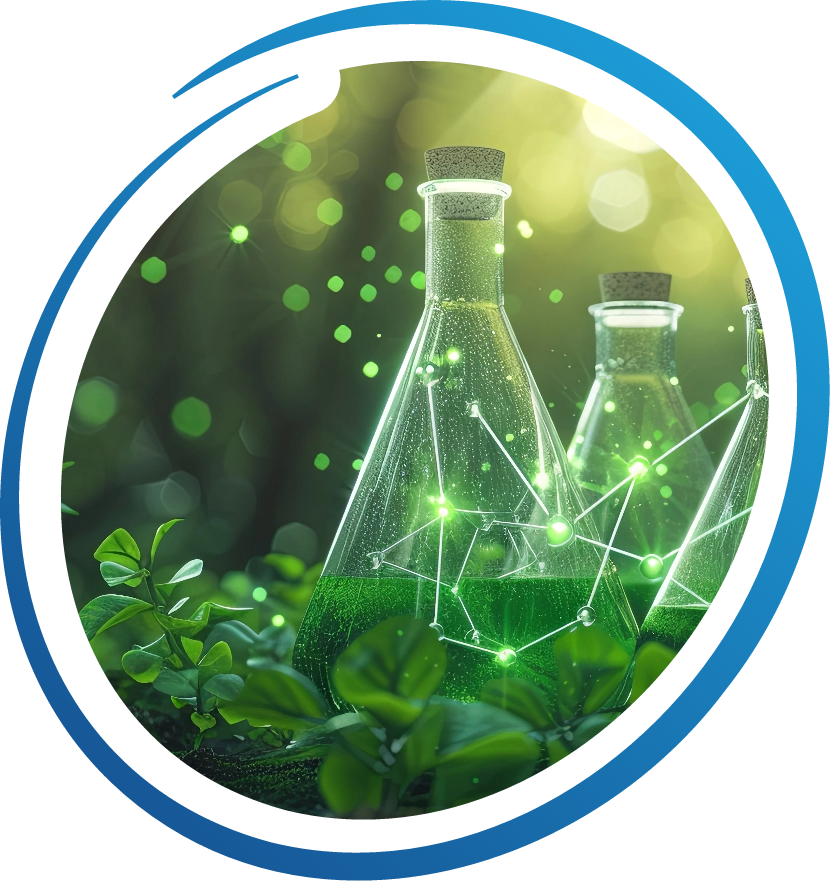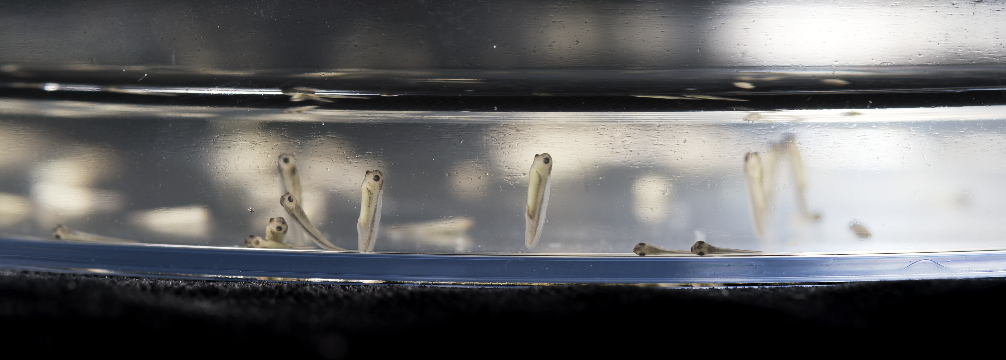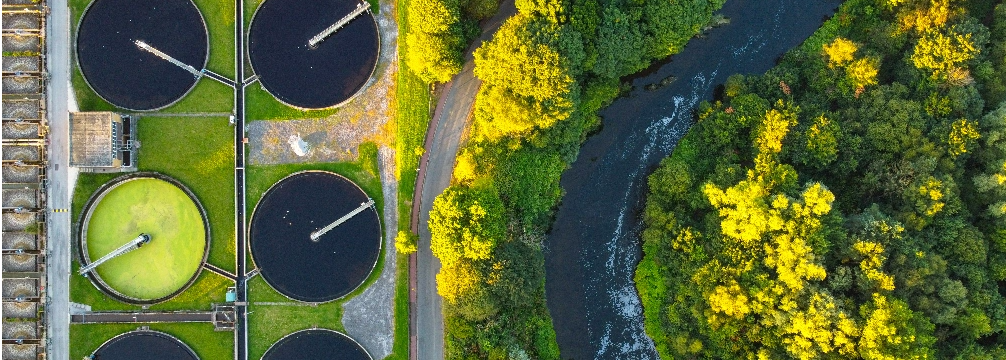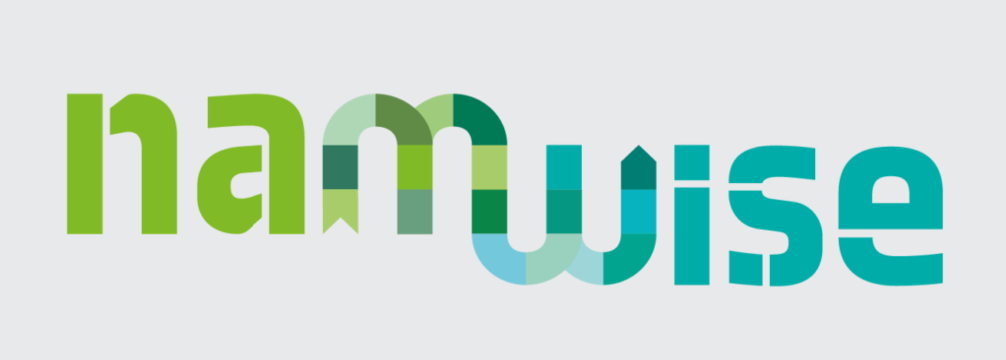R&D and collaborative projects
Current and upcoming projects
As an expert in endocrine disruption, Watchfrog is regularly consulted regarding this subject and participates in various European projects.
Below you will find information about current and upcoming projects.

PrecisionTox

The goal of PrecisionTox is to better protect the health of people and the environment by providing faster and more accurate methods to accelerate chemical safety testing by bringing toxicology to a new era, without the need for laboratory animal testing. Laboratoire WatchFrog is currently developing and employing a medium throughput assay with Xenopus embryos. This assay will provide essential toxicological information at a transcriptomic and metabolomic level of the effects of 250 reference chemicals in a vertebrate organism.
Partners :
THE UNIVERSITY OF BIRMINGHAM, ALTERTOX, MISVIK BIOLOGY, CELL NETWORKS GMBH, HEIDELBERG UNIVERSITY (DE), HELMHOLTZ CENTRE FOR ENVIRONMENTAL RESEARCH, KARLSRUHER INSTITUTE FOR TECHNOLOGY, LATVIA MGI TECH SIA, CRG CENTRE FOR GENOMIC REGULATION, LEITAT, MICHABO HEALTH SCIENCE LTD, OXFORD UNIVERSITY, CLEMSON UNIVERSITY (US), INDIANA UNIVERSTY (US).
Financing :
European Union’s Horizon 2020
ATHENA

This European Consortium aims to mobilise the scientific progress made in recent years to develop and validate new OECD methods for thyroid hormone axis disrupting-chemicals. Laboratoire Watchfrog will develop the automation of its XETA test, TG OECD 248.
Partners:
Brunel University London, Denmarks Tekniske University, Charite University Berlin, CNRS, Stiching VU, Karolinska Institute, Karlstads University, Erasmus University center Rotterdam.
Financing:
European Union’s Horizon 2020
Polysafe

“Are substitutes for plastic containers in canteens safe?” The PoLySafe project addresses this issue to investigate the safety of current containers and their alternatives in light of a planned ban on the use of plastic containers in mass catering, announced for 2025.
The objective of PoLySafe is to pragmatically and impartially generate factual information to support decision-making on an urgent and essential public health issue (biological activity data and impact on four major endocrine pathways of food containers).
The results of this project are intended to contribute to the development of optimized standards for the assessment of food containers in the broadest sense.
Partners:
Laboratoire Watchfrog ;PhyMA Physiologie Moléculaire et Adaptation ; INRAE TOXALIM – MEX Institut National de recherche pour l’Agriculture, l’Alimentation et l’Environnement ; IRCM Institut de Recherche en Cancérologie de Montpellier ; LNE LABO NAT DE METROLOGIE ET ESSAIS
Financing:
ANR
MoA-ID

Following the emergence and OECD validation of various thyroid axis assessment tests, the MoA-ID project aims to complete the identification of existing modes of action of thyroid disruptors through a combination of tests on Eleutheroembryos (XETA® and TETHYS®) developed by Watchfrog.
Partners:
Laboratoire Watchfrog , CNRS – RoDEo – Paris
Financing:
ANSES
CHLOR2NOU

Chlordecone represents a major health issue, particularly in overseas territories.
The CHLOR2NOU project aims to apply cross-disciplinary research to continue and strengthen the measures already implemented to reduce population exposure to chlordecone in Guadeloupe and Martinique, as well as to implement appropriate support measures.
The CHLOR2NOU project also aims to develop new monitoring tools for chlordecone and its transformation products or metabolites (degradation products).
Partners:
Laboratoire Watchfrog , Process Chem, l’Institut national de recherche pour l’agriculture, l’alimentation et l’environnement (INRAE), l’Institut Pasteur de la Guadeloupe, l’iSm2, le Laboratoire d’étude des interactions entre sol-agrosystème-hydrosystème (LISAH), l’UMR Agroécologie de Dijon, l’UMR MARine Biodiversity Exploitation and Conservation (MARBEC), le laboratoire Environnements et paléoenvironnements océaniques et continentaux (EPOC), l’Institut de recherche en cancérologie de Montpellier (IRCM), l’Institut technique tropical (IT2), le Laboratoire Caribéen de Sciences Sociales (LC2S), l’Institut des sciences du vivant Frédéric Joliot/Service de pharmacologie et d’immunoanalyse (SPI), ECOSYS, ENSAIA-Chaire Agrométha, Biologie des organismes et écosystèmes aquatiques (BOREA), le Centre de coopération internationale en recherche agronomique pour le développement (CIRAD), l’UMR GENOSCOPE/CEA.
Financing:
ANR, la Région Guadeloupe et la Collectivité territoriale de Martinique
CLEAN — HORIZON-MSCA-2021

To ensure proper implementation of contaminated sludge treatment in industrial applications, it is imperative to have highly qualified professionals with expertise in the latest technological advances.
CLEAN addresses this need by aiming to train 10 creative and enterprising PhD candidates through an international, intersectoral and interdisciplinary research program in the field of sludge (pre)treatment combined with state-of-the-art biochemical conversion techniques and impact assessment, for the efficient removal and/or recovery of (hazardous) compounds and resources from municipal and industrial sludge.
Partners:
Laboratoire Watchfrog, University of Leuven – KU Leuven (BE), Delft University of Technology – TUDelft (NL), Swedish University of Agricultural Sciences – SLU (SE), National Research Institute for Agriculture, Food and Environment – INRAE (FR), Nijhuis Industries (NL), The University of Aveiro (PT)
Financing:
EU, Grant Agreement Nr. 101120427
NeXED — HORIZON-MSCA-2023

NeXED addresses three critical challenges in the field of endocrine disruptors:
First, the assessment of human and environmental endocrine disruptors has historically been a distinct discipline, while there is a growing need to use multi-species data in a One Health approach.
Second, the assessment of endocrine disruptors currently focuses on single compounds, whereas in an ecologically realistic scenario, organisms are confronted with complex mixtures of endocrine disruptors.
Third, new test methods for the assessment of endocrine disruptors are needed, covering less well-characterized mechanisms and effects.
NeXED aims to facilitate a paradigm shift in the assessment of endocrine disruptors by training a new generation of interdisciplinary toxicologists specialized in the use of harmonized approaches within a One Health framework.
Partners:
Laboratoire Watchfrog, UNIVERSITY OF SOUTHAMPTON (UOS), AGILENT TECHNOLOGIES SALES & SERVICES GMBH & CO KG (AG), EcoMole s.r.o. (EM), The Danish Environmental Protection Agency (DEPA), RIJKSINSTITUUT VOOR VOLKSGEZONDHEID EN MILIEU (RIVM), Federal Public Service Public Health (FPSH), STIFTELSEN NILU (NILU), DNTOX GmbH (DNTOX), SORBONNE UNIVERSITE (SU), partenaire associé au CENTRE NATIONAL DE LA RECHERCHE SCIENTIFIQUE CNRS (CNRS), MUSEUM NATIONAL D’HISTOIRE NATURELLE (MNHN), partenaire associé au CENTRE NATIONAL DE LA RECHERCHE SCIENTIFIQUE CNRS (CNRS), THE SECRETARY OF STATE FOR ENVIRONMENT, FOOD AND RURAL AFFAIRS (CEFAS)
Financing:
EU, Grant Agreement Nr. 101168892
NAMWISE - HORIZON-HLTH-2024

The vision of the NAMWISE project is to provide a supportive framework to pave the way for a paradigm shift in (eco)toxicology, based on scientific evidence, that does not rely on in vivo data.
To achieve this vision, the project will build on the knowledge gained on new methodological approaches (NAMs) and then gather further input from all stakeholders to refine, improve, and optimize their use in the regulatory contexts of chemicals and pharmaceuticals.
Partners:
Laboratoire Watchfrog, Ineris, ISCIII, IEBT, Watchfrog, Sanofi, CEHTRA, Aquatox, PEPPER, UBA, LBP, Axelera, Bioregio Stern
Financing:
EU, Grant Agreement Nr. 101191595